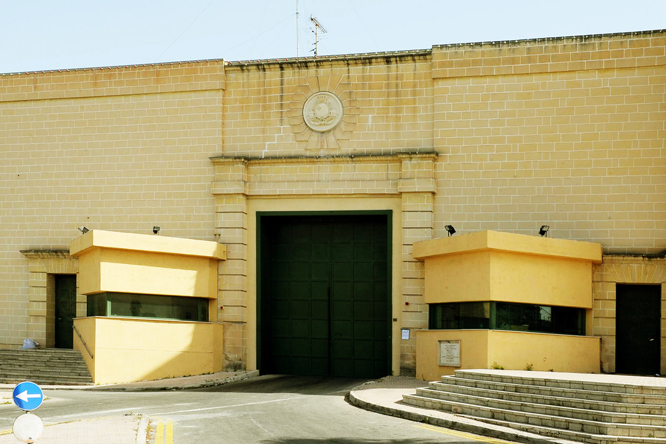Criminal charges should not be brought in the form of a mass prosecution, Director of NGO Aditus Neil Falzon told The Shift, referring to the migrants who were arrested and imprisoned following riots at open centres in October.
Falzon’s statement to The Shift comes in light of figures tabled in Parliament by Home Affairs Minister Byron Camilleri, which among others showed that the number of foreigners imprisoned at the Corradino Correctional Facility drastically rose to 531 in 2019 from 282 in 2018.
Explaining the increase, Camilleri said this was in part due to the 128 migrants who were sent to prison following riots at open centres “on a number of occasions”.
In a reply to a parliamentary question last October, then Home Affairs Minister Michael Farrugia had said that the current building is “unsuitable to host the actual number of prisoners”, which at that time totalled to 813 (750 men and 63 women), and that it was built to host almost half that population. Despite this, approximately 100 migrants were imprisoned in October 2019 alone. Farrugia had added that the intention of the government was to extend the building to facilitate the needs.
Data tabled earlier this month also revealed that there are currently 458 cells that are occupied, of which 200 by more than one person and are, at largest, three meters high, wide and long. A separate parliamentary question revealed no data was kept abut violence between cellmates.
Asked for his reaction to the large number of migrants who have been imprisoned pending trial following the riots, Falzon said that charging more than 100 people all together was “anomalous”.
He also noted that only a couple of legal aid lawyers were assigned to over 100 people. “We wonder what kind of justice can be served to these men,” he said. “There must be attention to the specific and individual role played by a person – if at all – for charges to be brought. We trust the justice system will indeed look at individual responsibility,” he said.
Falzon went on to say that much of Malta’s detention regime was illegal, and the authorities were aware of this. It was very common for migrants to protest at the way they were being treated, especially when in illegal detention centres or in places with inhumane conditions, explained Falzon.
Although he believes that action should be taken against any form of violence, society has a responsibility to understand why people reacted in such a way and respond to that understanding.
“Malta needs to revise the way it treats people reaching our shores. Whilst it is true that we do have capacity limitations, these limitations do not justify treatment that is illegal, inhumane and degrading… For things to change they need to move from knowing to caring, from viewing the migrant as a political tool to a human being,” Falzon told The Shift.
In January, Aditus, together with Integra Foundation and the Jesuit Refugee Service, had criticised the “inhumane” manner in which a group of 22 migrants were brought to court after being charged with crimes in relation to a protest which took place in Safi Detention Centre in the same month.
They noted that all the migrants were tied together in pairs with cable ties and seemed to be wearing the same clothes they had on when arrested the day before. Some were barefoot. A large number of the accompanying police officers were wearing white gloves.
This treatment also amounted to institutionalised racism since this way of parading accused persons seems to be reserved to non-Maltese nationals, they pointed out.
“We have previously had the opportunity to note that the ongoing detention of hundreds of men, women and children at Safi detention centre and the Marsa initial reception centre is illegal, as explicitly pronounced by Maltese courts in November 2019,” the NGOs said.












